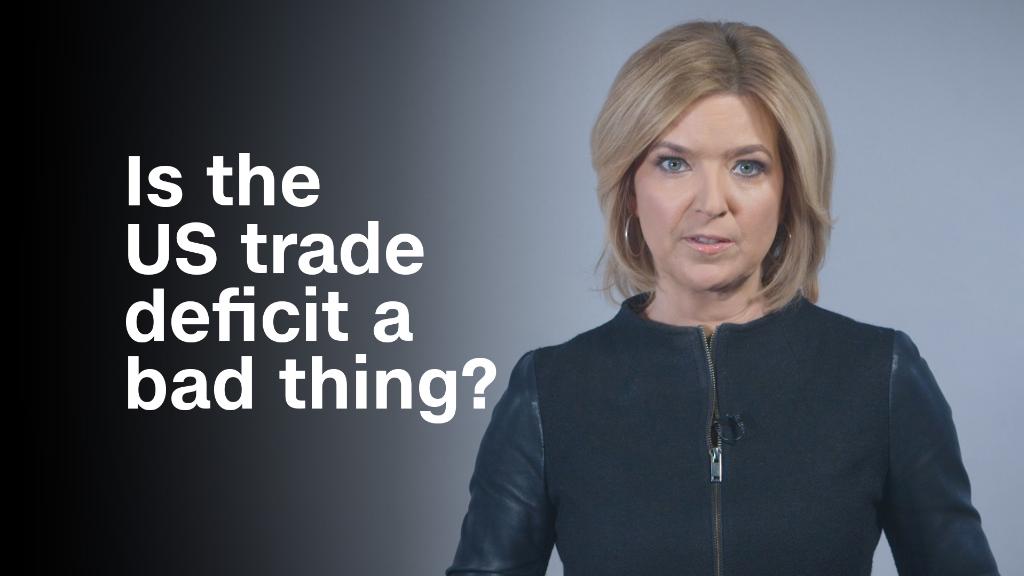
The United States buys way more from the rest of the world than it sells. It's called the trade deficit, and it was $566 billion last year.
The way President Trump sees it, America is the loser in a global trade imbalance he calls a "disaster." In Trump's worldview, trade deficits are bad.
But that's not always true.
Sometimes a trade deficit is the byproduct of a strong economy. When Americans are confident about their jobs and savings, they spend money. In a globalized economy, they increasingly spend their money on imported goods.
Yes, the nation imports more than it exports — especially manufactured goods like clothes, electronics and auto parts. But the United States is no longer just a manufacturing economy. It is a powerhouse in services, as well. Think media, finance and technology. In services, the United States ran a $244 billion trade surplus last year.
Related: Tariffs, Trump and trade wars: Here's what it all means
The way the president explains the trade deficit, America "lost" $566 billion. But it's not like there is one bank account, overdrawn. Trade is incredibly complex. The money that flows to other countries doesn't simply disappear. It becomes cash that in many cases has to be reinvested. And where does it go? Back to the United States, parked in Treasury bonds, stocks, real estate, factories and other investments. America imports goods, and other countries export capital in return.
On the flip side, trade surpluses are not always a good thing. The last time the United States ran a trade surplus, Gerald Ford was president and the country was in the middle of a recession. Japan had a $27 billion trade surplus last year with the rest of the world, yet its economy is stagnant. It hasn't been able to export its way out of what's known as its "lost decade" of economic growth.
The trouble with trade deficits comes when countries cheat. And here the president has a very good point.
When foreign governments steal intellectual property, that's not a level playing field. The same goes for when other countries ignore trademarks and patents, rely on cheap labor, have low environmental and safety standards, manipulate their currency to give their products a price advantage, and dump their products into foreign markets to kill competition.


